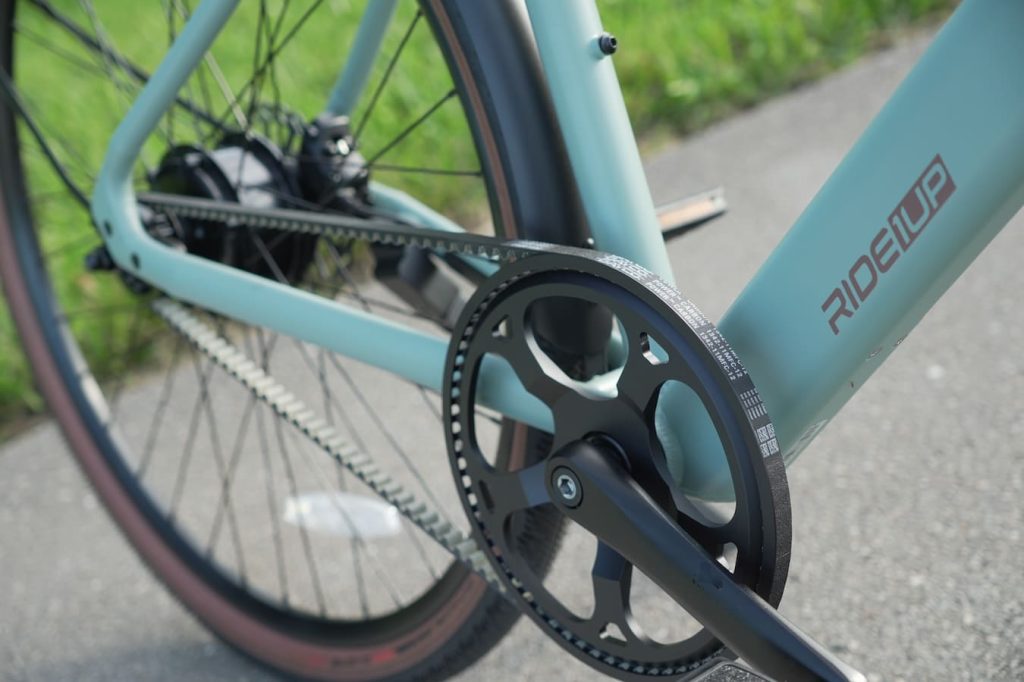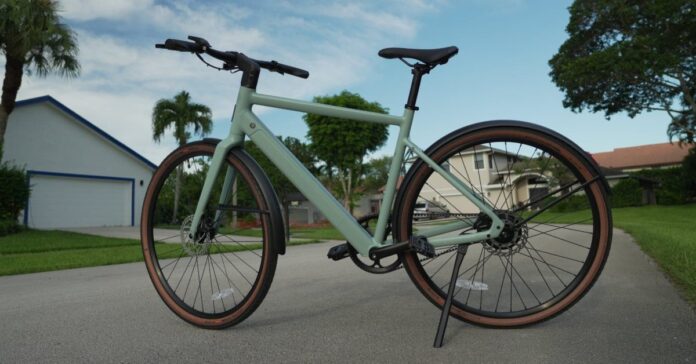North American e-bike regulations allow a higher power limit of 750W, which has resulted in an amazingly diverse field of super powerful e-bikes. However, that also means there’s a push towards the extra heavy end of the spectrum. But as a nice break from the race to more power, now that I’ve been testing the lightweight Ride1Up Roadster V3 for several weeks, I’m glad to finally be back on a lighter and more efficient ride that reminds me of the simpler times.
Ride1Up Roadster V3 Video Review
Ride1Up Roadster V3 Tech Specs
- Motor: 500W and 50Nm rear hub motor from MiVice
- Top speed: 28 mph (45 km/h) on pedal assist or 20 mph (32 km/h) on throttle
- Range: 20-40 miles (32-64 km)
- Battery: 36V 10Ah (360Wh) UL-certified with Samsung 50GB cells
- Weight: 39 lb (17.7 kg)
- Load Capacity: 300 lb (136 kg)
- Frame: Aluminum alloy 6061
- Brakes: Tektro hydraulic dual-piston disc brakes
- Extras: Available as single-speed Dayco belt drive or 10-speed with Shimano Deore drivetrain, new color LCD display with built-in throttle and speedometer, battery gauge, PAS level indicator, three frame sizes available and a wide range of accessories
- Price: $1,295
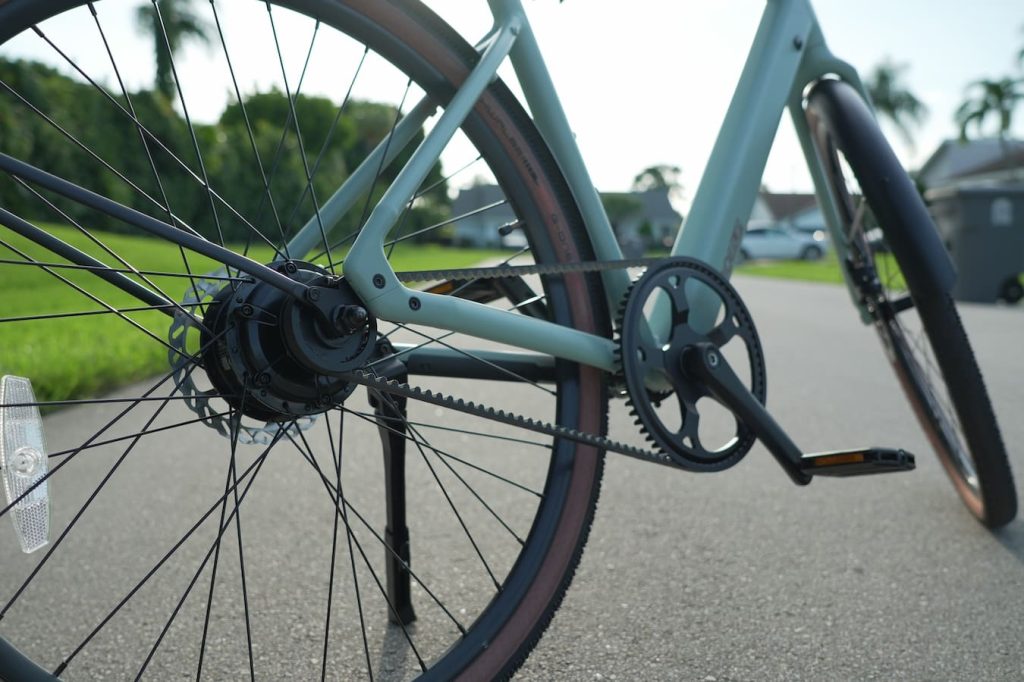
Light and efficient
The Ride1Up Roadster V3 feels like a return to classic cycling, but on an e-bike. That means you don’t get massive rubber and unlimited watts to shred that rubber, and instead you’ve got a bike that looks a lot more like what your parents probably rode back in the day (or at least what MY parents rode).
It’s a basic-looking diamond frame without many obvious thrills beyond the beautifully smoothed welds and minimalist design. But if you look a bit deeper, you’ll find a number of major improvements.
First off, the electric system is completely overhauled compared to the Roadster V2. This time we’ve got a new MiVice motor, which is a much higher quality piece of gear. I visited the Mivice factory earlier this year, and their dedication to precision and quality manufacturing is impressive.
The bike also benefits from Mivice’s torque sensor and controller, adding even more quality electronics to the bike. While 500W might not sound like much compared to today’s 500W e-bikes, it feels much more powerful on such a lightweight e-bike. And ultimately, this bike is designed for commuting, not racing, so the medium power level is fitting.
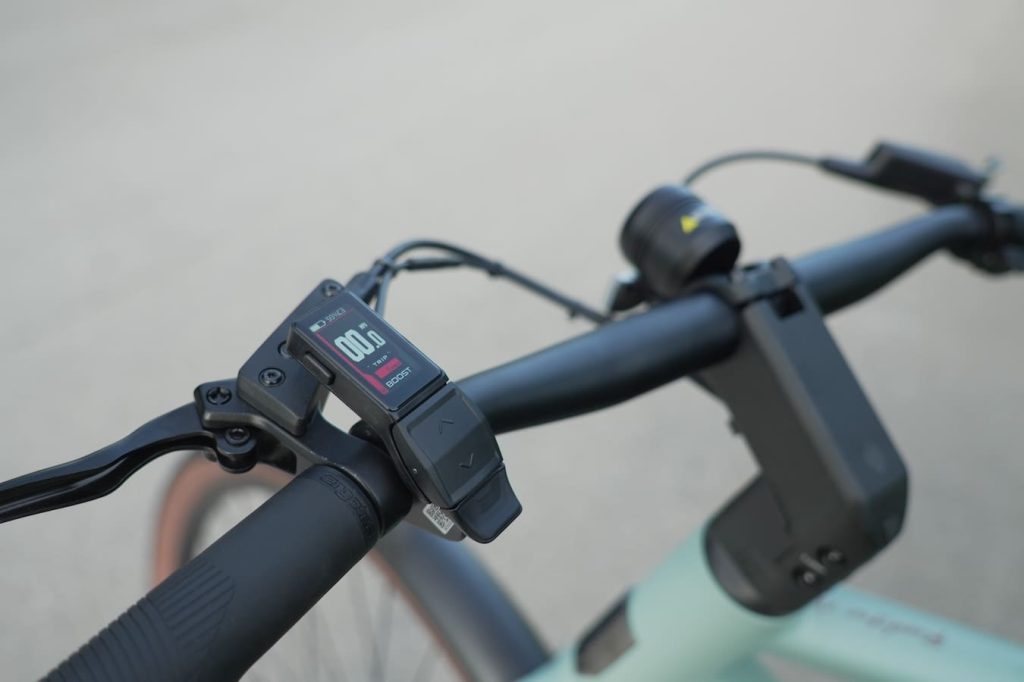
The battery gets a big upgrade too, with nearly 50% more capacity. The new 360Wh battery will offer nearly 40 miles (64 km) of range on pedal assist, though not if you’re flying at the top speed of 28 mph (45 km/h) all the time.
If you use the new throttle, which is slickly built into the handlebar display, you might find that a range of closer to 15-20 miles is achievable under less-than-ideal conditions (and a bit more if you ride slower or more efficiently with occasional pedaling). The best way to ride the bike, in my opinion, is with a combination of throttle and pedal assist. The torque sensor makes it a dream to pedal, but I’ll admit to being happy to have that throttle at times when I’m not feeling my strongest.
I’m glad to see that the battery is UL-certified too, since this is becoming a key litmus test for many riders who want to ensure the battery meets higher safety standards.
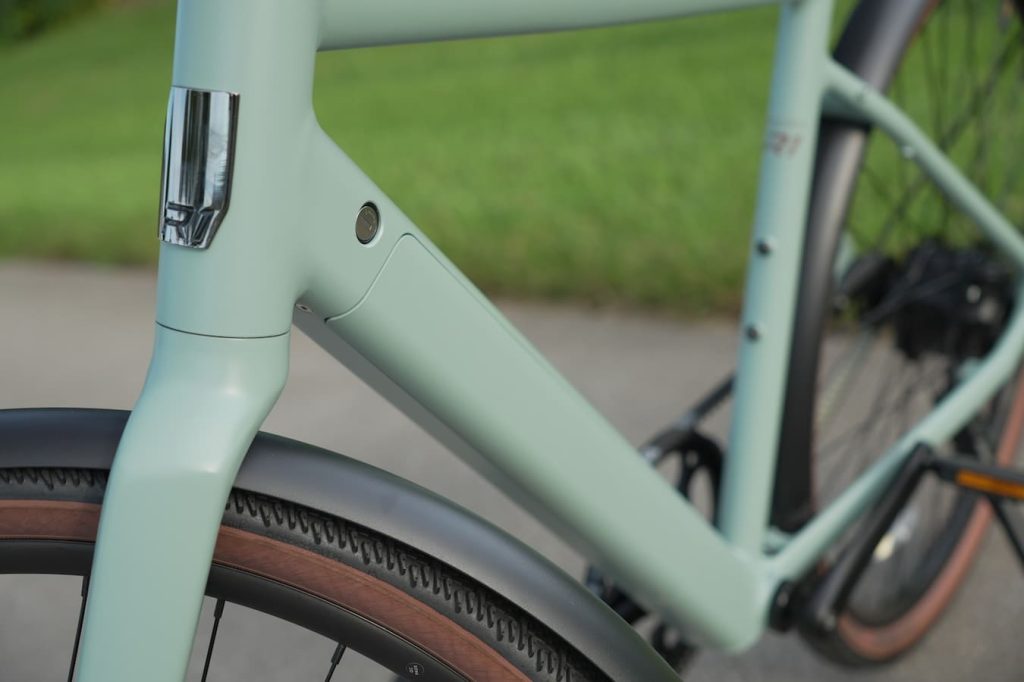
We’ve got a choice in pedal drivetrains between two slick options. I’ve been testing the single-speed belt drive setup that uses a Dayco belt, but you can also opt for a 10-speed with a Shimano Deore transmission.
I like single-speed e-bikes (likely because I live in a flat coastal area), but I understand that many folks don’t want to be stuck to a single gear ratio – especially not at the bottom of a hill. The throttle is helpful for those times that you long for a lower gear, and so I think the belt drive will actually be sufficient for many people. But it’s still nice to know that the 10-speed option is there for those who really want the option to shift.
And those folks will be happy to see a good quality transmission too, not some bottom basement hardware that simply fulfills the role. That Shimano Deore setup is going to stay in tune better and lead to less maintenance over time, though the belt drive is of course the even lower maintenance option.
The included hydraulic disc brakes also mean less routine maintenance since you don’t have to occasionally adjust your brake cables due to stretch. Hydraulic brakes basically stay tuned until you’ve finally worn out the pads and need to replace them, which will eventually happen on mechanical disc brakes too, but the latter has a lot more maintenance required before you get to that step. Sure, one day you may need to top up or swap fluid, but that’s a long way away for most people – and some people may never ride their bike long enough to ever need to worry about that step.
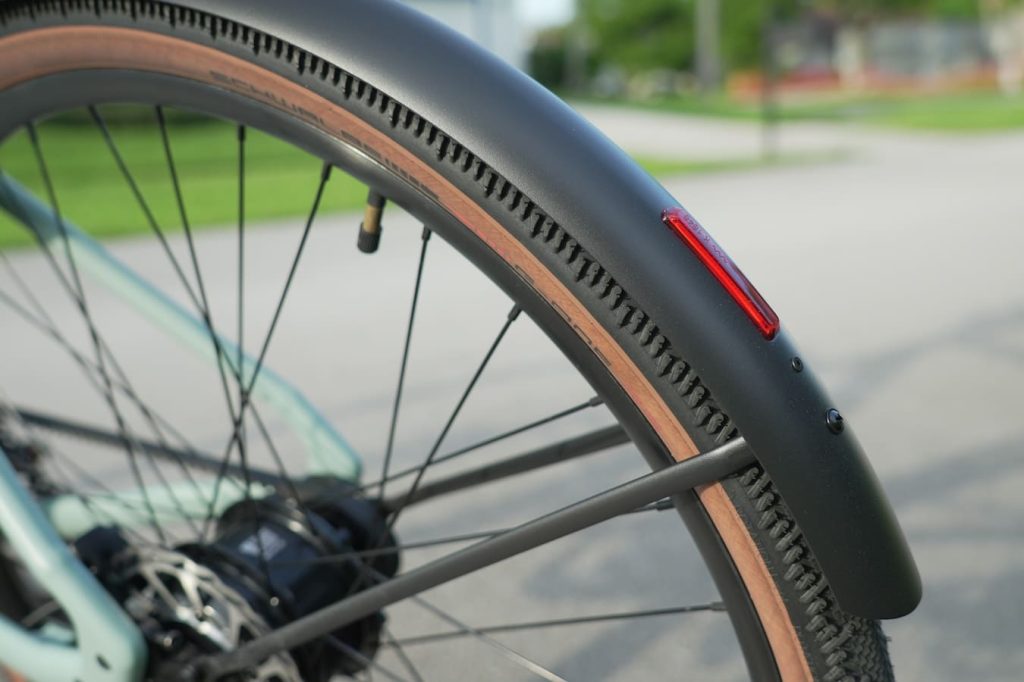
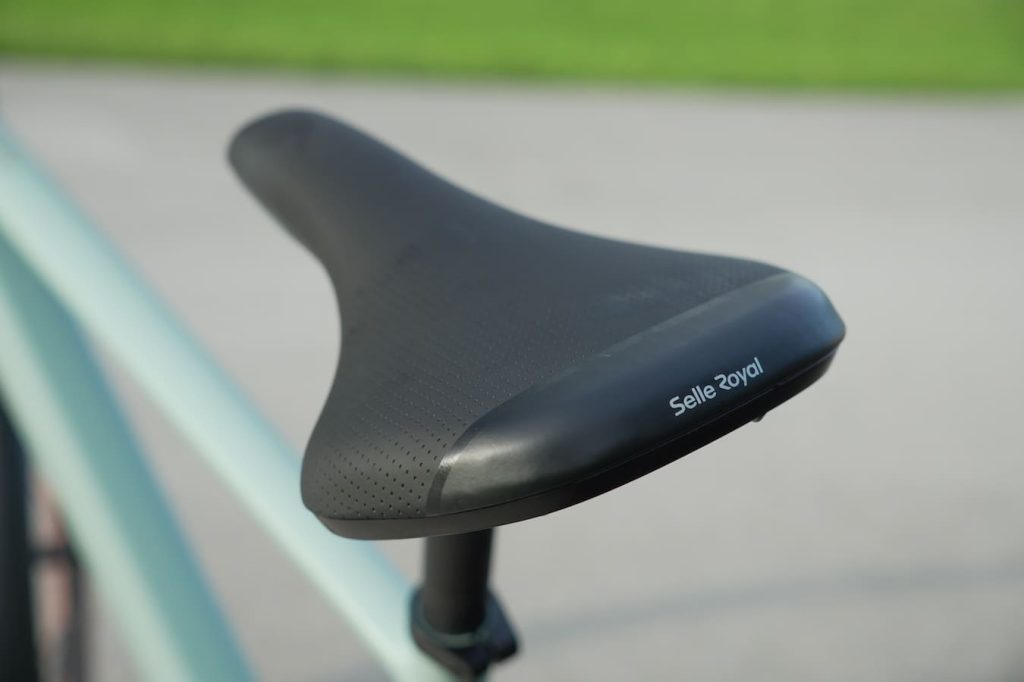
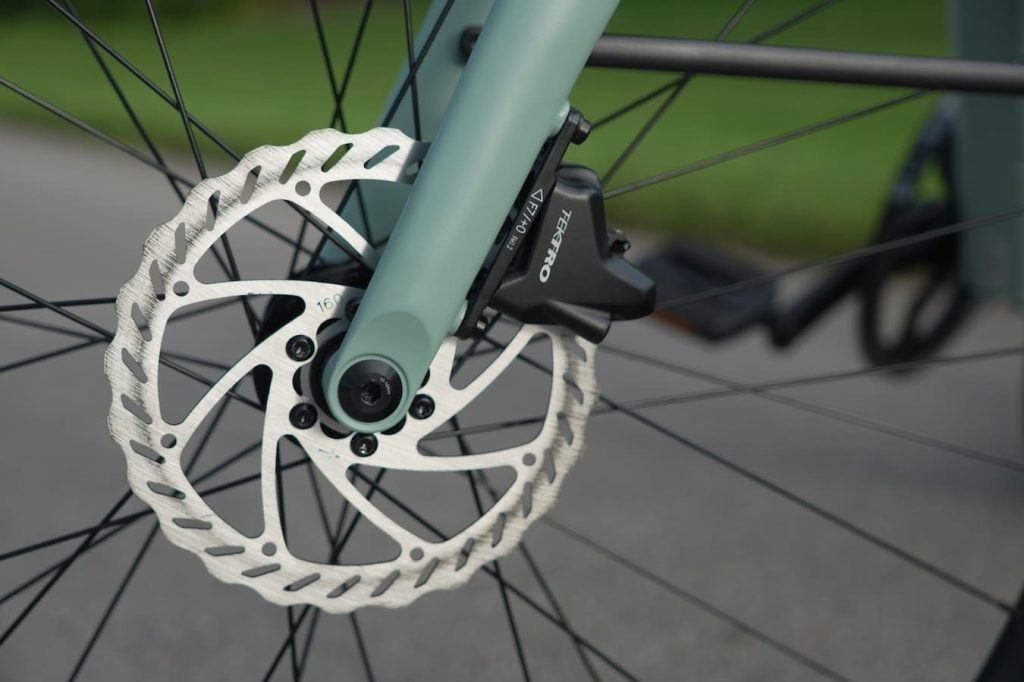
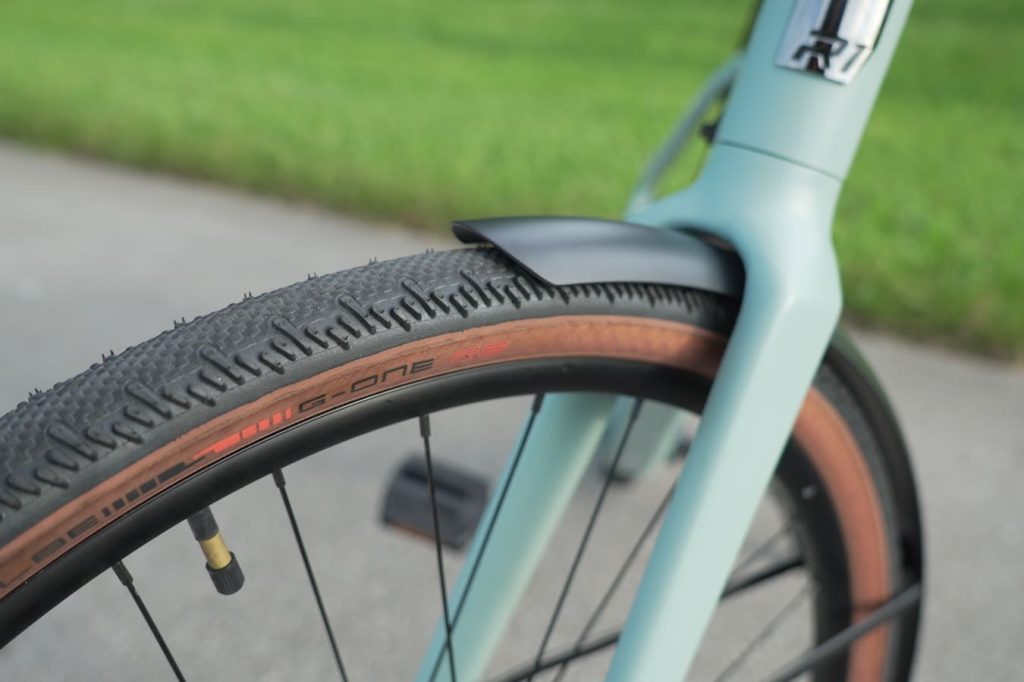
For the price of $1,295, you’re getting some incredible value here. A lightweight, torque sensor-enabled 28 mph e-bike with a quality transmission or a belt-drive single-speed setup from a major manufacturer, key safety compliance, and free shipping—that’s a lot of bang for your buck!
And the fact that there are also three frame sizes available for a better fit, plus two different colors, are both key upgrades you won’t find from several other value-priced commuter e-bikes.
That being said, no e-bike is perfect and that includes the new Ride1Up Roadster V3. Below are a few of my complaints.
What are the downsides of the Ride1Up Roadster V3?
I always loved how lightweight the Roadster series has been, but I was surprised to find that the V3 got a bit chunkier this time. At 39 lb, it’s still very lightweight compared to most e-bikes on the market, but the previous model was around 5 lb lighter and so you tend to miss the old model’s lower weight on your shoulder when carrying it up a flight of stairs or onto a subway, for example.
On the other hand, I know where that weight came from, and I accept it. In the past, I pined for more battery (and to make it removable), included LED lights, included fenders, and other features that would improve the bike’s usability. Now that they’ve given me all of that, I can’t really complain about the weight that comes along with those components, can I?
Of course the bike also lacks suspension, which I don’t really mind personally, but I know will be a deal breaker for some folks who tend to remind me how important that is for riders without the same vertebrae integrity they had in their youth. Sure, I understand that. And that’s why I’m glad there are so many e-bike styles out there today so folks can choose the one that fits them and their type of riding best. This is definitely not a bike for someone who wants fatter tires and built-in suspension, that’s for sure. This is a lightweight and speedy commuter that has a bit of a hard saddle for a rider who’s used to a bit of a harder ride than those comfortable cruisers can offer.
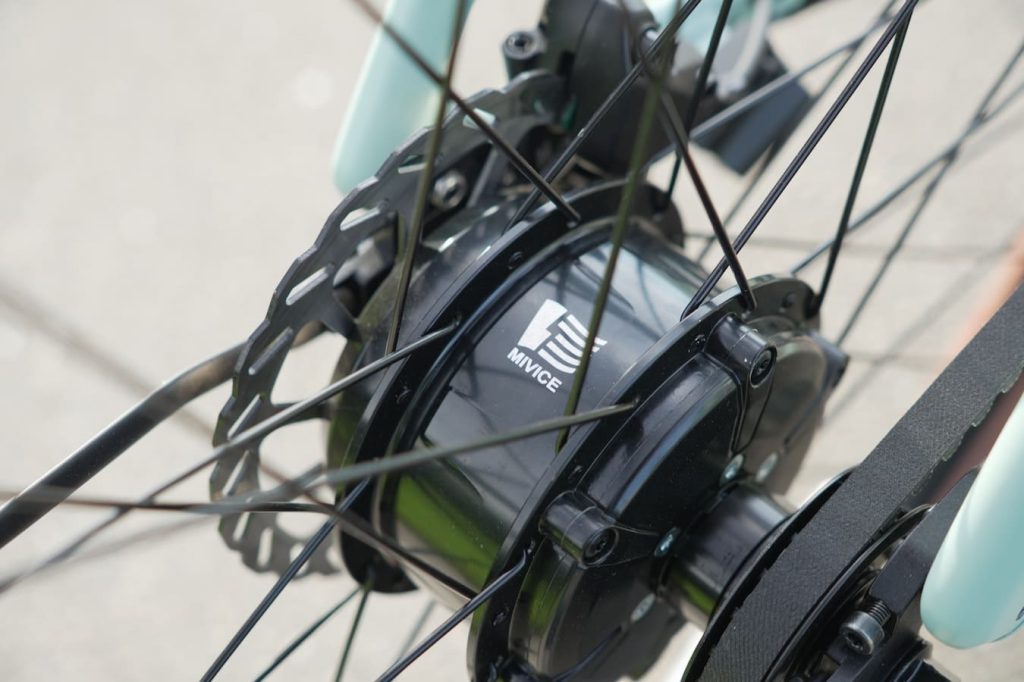
Sum it all up for me?
In short, the Ride1Up Roadster V3 is an excellent choice for someone who wants a fairly lightweight and medium powered electric bike, and also wants some pretty darn good components for the price.
It won’t rival a Specialized or a Trek, but it also costs a small fraction of the price of those nicer brands, while still giving riders good quality components.
The bike is well made and rides like some real thought was put into it – which is becoming a rarity these days among value-priced brands known for cutting corners on design. The bike even rides incredibly well hands-free, which is a hallmark of proper geometry and design.
It might leave some folks wanting more, especially those who have gotten used to maxing out the allowable performance limits of North American e-bikes, but I’m happy to ride the bike at modest power levels and torque figures because it just feels like the kind of ride I want on a relaxing commute, not on a furious race to work. There are other bikes with more power and bigger batteries, and you should choose one of those if that’s your goal. The Ride1Up Roadster V3 bike is meant more for a rider who puts a premium on design, handling, components, and, above all else, value.
